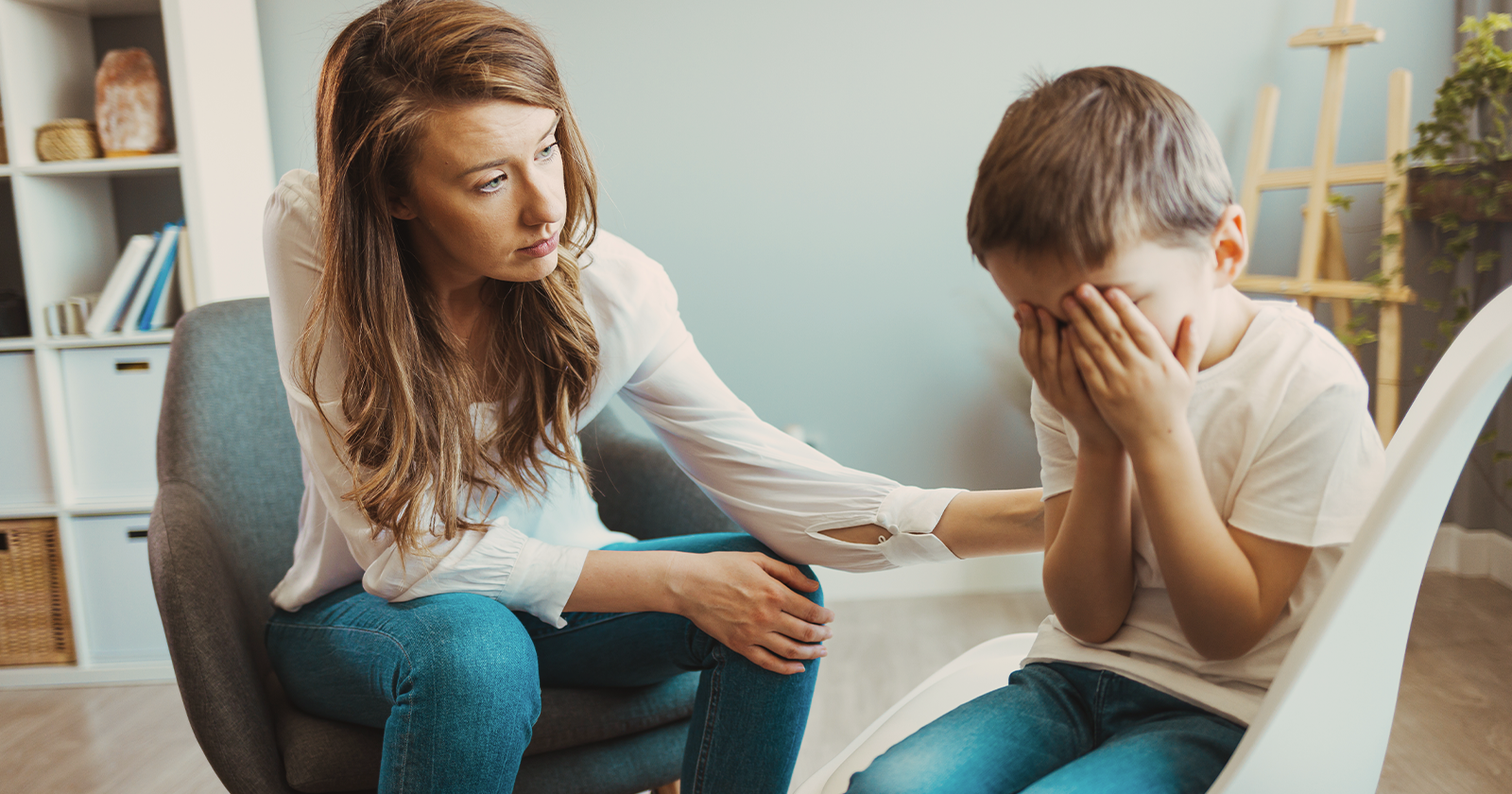Everybody experiences different fears, worries, and stresses in life; kids are no exception. Children can exhibit stronger fears depending on their age and stages of development. Fears and worries are natural. However, persistent or extreme forms of fear could be due to anxiety. A great example is separation anxiety. Typically, toddlers become upset or distressed about being away from their parent(s), even if they're safe and being cared for.
It's common for a child to experience anxiety when starting preschool or grade school. From 2016 to 2019, nearly 10 percent of children ages 3-17 were diagnosed with anxiety, with that number continuing to rise. Yes, the unfamiliar feeling of separation from routine is uncomfortable for most people, but when that feeling of anxiety or fear overcomes a child to the point it’s limiting their life, it may be time to consult a doctor.
"Anxiety in children can hold them back from achieving their ultimate potential in life and definitely decreases their quality of life," says Dr. Mike Frostad (Dr. Mike), a pediatrician at Palouse Pediatrics. "If the anxiety is minor and not really disruptive to the child or the family, then it may make sense for parents to work with the child on the issues and monitor closely."
With over 25 years of experience in pediatric care, Dr. Mike has seen and helped many children get the help they need when facing anxieties and fears that may be holding them back. He took time to answer general questions about anxieties and help parents understand how to best help their children:
1. Will anxiety go away on its own?
Most of the time, minor anxieties will go away as children become more familiar with an experience or situation. However, in some cases, when the anxiety doesn't go away, it may disrupt a child's daily life. Those hindrances may affect their education and learning ability, social interactions, and sometimes even their sleep schedule.
2. What steps should be taken if anxiety worsens or doesn't go away?
If left untreated, anxiety can significantly burden children throughout their lives. "Anxiety tends to wax and wane depending on life circumstances and stressors," Dr. Mike says. "Sometimes anxiety builds to the point of debilitation." Visiting a pediatrician to identify the issues and formulate a plan is a great place to start. The goal is to treat the anxiety before it becomes debilitating.
3. What should someone expect when visiting the pediatrician for their child's anxiety?
Counseling helps the child develop various coping strategies, sometimes using medication. When visiting with a pediatrician one of the basic strategies that may be discussed or suggested is a referral for ongoing counseling. According to Dr. Mike, typically, there are "follow-up visits to check on progress and adjusting the treatment plan as needed."
4. How often does a child need medication to help with their anxiety?
While medication is sometimes part of treatment plans, it is not always used. "Recent studies show that if treatment consists of both counseling and medication strategies, the child is likely to have more rapid improvement," Dr. Mike says. "This also makes it less likely the child will struggle with the anxiety again in the future."
5. How long does a child typically take medication for anxiety once prescribed?
When medication is prescribed, it is most often used for 6-12 months. In that time frame, it helps gain momentum towards improvement and, in addition to counseling, where the child learns effective coping strategies. Dr. Mike explains, "After a sustained period of improvement, and with discussion with the patient and family, medication is discontinued carefully, and the team monitors the anxiety symptoms in the child." The medication will occasionally be resumed if the anxiety symptoms become disruptive. "Some children do so much better on the medication that they are kept on it long term," says Dr. Mike.
6. Are children with anxiety more likely to suffer from depression or other mental health issues?
Simply put, yes. "Children with anxiety are more likely to also struggle with issues like learning disorders, depression, attention problems, and social stressors," according to Dr. Mike. "That should be addressed as part of the child's overall treatment plan.”
Anxiety symptoms can affect a child's sleep, increasing the chances of physical symptoms like fatigue, headaches, or stomachaches. When watching for signs of anxiety, look for extensive fear or worry, but also watch for irritability and anger emotions. Sometimes, children can internalize symptoms like worrying, thus, making anxiety more challenging to detect.
If your child is exhibiting any signs of anxiety or if you are concerned about the possibility of your child having anxiety, please call Palouse Pediatrics to schedule an appointment with one of our pediatricians in Pullman, WA or Moscow, ID.
Pullman office: (509) 332-2605
Moscow office: (208) 882-2247
